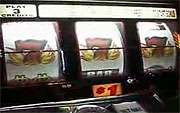
MONDAY, Aug. 5 (HealthDay News) — Ambulance calls to casinos in Gilpin County, Colo., fell about 20 percent after smoking was banned, a new study finds.
The decline mirrored a drop in ambulance calls to public locations two years earlier when the state banned smoking everywhere except in casinos, according to the authors of the study appearing Aug. 5 in the journal Circulation.
The researchers said the smoking ban imposed on casinos likely limited nonsmokers’ exposure to secondhand smoke and may have motivated some smokers to quit.
“Inhaling secondhand smoke increases the chances of blood clots that can block arteries and makes it more difficult for arteries to expand properly, changes that can trigger heart attacks,” study lead author Stanton Glantz, director of the Center for Tobacco Control Research and Education, said in a journal news release.
“The calls may also have decreased due to smokers not being able to smoke in the casinos, thus avoiding the immediate toxic effects of smoke on their blood and blood vessels, and because some people quit smoking,” added Glantz, also a professor of medicine in the division of cardiology at the University of California, San Francisco.
The study is believed to be the first to examine the health impact of smoking bans in casinos. Gilpin County is a tourist destination with 26 casinos, the largest concentration in Colorado.
A statewide smoking ban in all other public locations — including workplaces, restaurants and bars — was introduced in 2006 and ambulance calls to those locations fell by nearly 23 percent. Smoking was banned in casinos in 2008 and, after that, ambulance calls to casinos in Gilpin County decreased by 19 percent.
“The fact that there were changes only at the time the law changed in both venues is strong evidence that the law is what caused the change in ambulance calls,” Glantz said in the news release.
“Casinos are often exempted from legislation mandating smoke-free environments, putting employees and patrons at risk for heart attacks, strokes, asthma attacks and other adverse events triggered by secondhand smoke,” he added. “The message to policymakers is clear: Stop granting casino exemptions. They lead to a substantial number of people being sent to the hospital, often at taxpayer expense, something that is completely preventable.”
More information
The U.S. Centers for Disease Control and Prevention has more about secondhand smoke.
Copyright © 2026 HealthDay. All rights reserved.

